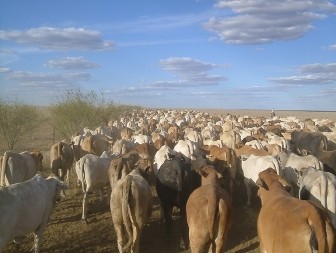Xu Xiaochun, the Chinese scientist behind the world's biggest cloning factory, claims to have the technology necessary to clone humans, only hesitating for fear of public backlash, reported Shanghai Daily.
Boyalife Group and its partners are building a giant plant in the north China port of Tianjin, where it will start production within the next seven months. It is projecting an output of a million cloned cows a year by 2020.
Aside from cattle, Xu's ambitions include cloning thoroughbred racehorses and dogs.
Boyalife is also working with Sooam, its South Korean partner, and the Chinese Academy of Sciences in order to improve the primate cloning capacity to create better research animals.
The lead between cloning monkeys and humans is not too far, posing a load of moral and ethical questions.
"The technology is already there," said Xu.
Xi said that the company is currently "self-restrained" when it comes to human cloning activities because of the potential backlash from the public.
However, he points out that social values can change, such as mainstream views on homosexuality, suggesting that time may see humans wanting to have more choices regarding their reproduction.
The Tianjin facility will house a bank of genes capable of storing around five million cell samples frozen in liquid nitrogen, which will serve as a catalogue of endangered species for the future generation.
Sooam is already working on bringing back the woolly mammoth from extinction using cells preserved in Siberian permafrost.
Sooam also offers the service of recreating dead pet dogs, reportedly charging $100,000 for each procedure.
As of now, Xu's goal is to become the world's first source of cloned beef, breeding cattle genetically identical to Kobe beef, allowing butchers to "slaughter less and produce more."
The safety of cloned beef is currently controversial. While the U.S. Food and Drug Administration has declared it safe, the European parliament has supported a ban on cloned animals and products.



























